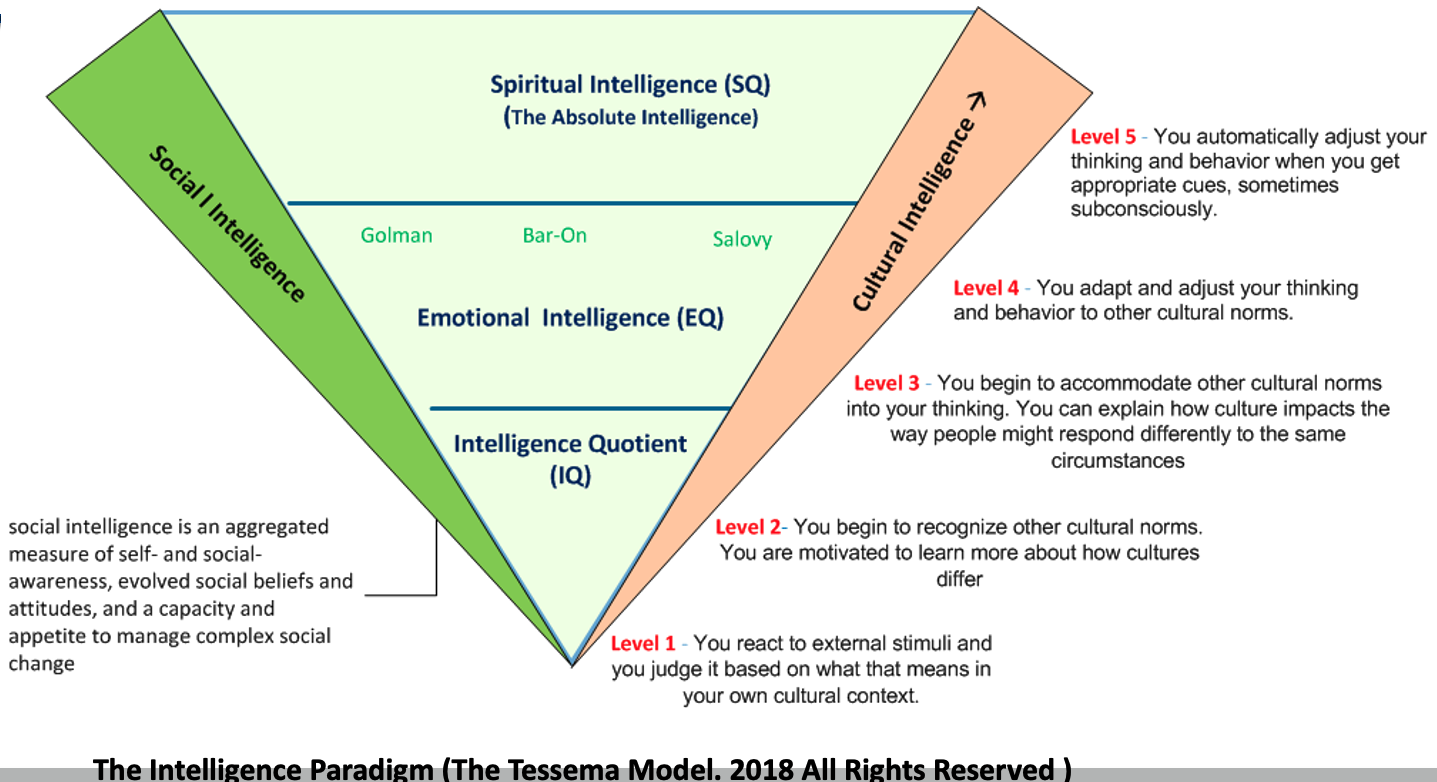Integrating Personal and Social Intelligence: A Sustainabile Project Management Approach Based on the Tessema Multiple Intelligence Framework
(FUSE-SPS- PDU 304)
In today’s complex and fast-evolving landscape, organizations that thrive are those that harness a diverse set of human intelligences—not just intellectual capacity, but emotional, cultural, social, and spiritual intelligence as well. Understanding and integrating these intelligences is essential for cultivating sustainable leadership, fostering resilient teams, and maintaining long-term competitiveness.

Talent Triangle Breakdown
Business Acumen: 2
Ways of Working: 3
Power Skills: 1
Individal Course Price
USD $59
Bundled Price for 60 PDU
USD $399
PDUs
6
Course Duration
6 hours
Associate Certifications
PMP, PMI-ACP, CAPM, PMI-CP
Course Description
This on-demand six-hour training introduces project management professionals to the Tessema Multiple Intelligence Framework (TMIF)—a strategic model that weaves together five core intelligences to support transformative leadership and sustainable project delivery. Participants will explore how each intelligence domain contributes to ethical decision-making, adaptive project leadership, and high-impact collaboration. By the end of the course, learners will be equipped with the tools and frameworks to apply TMIF in real-world project environments, strengthening individual and organizational performance through intentional, values-driven intelligence integration.
Learning Objectives
By the end of this course, particpants will be able to:
Intellectual Intelligence (IQ)
Analyze how analytical reasoning, strategic thinking, and problem-solving capacities form the foundation of sustainable leadership action.
Emotional Intelligence (EQ)
Apply emotional self-awareness, empathy, and interpersonal regulation strategies to build high-performing, psychologically safe project teams.
Spiritual Intelligence (SQ)
Demonstrate how purpose-driven decision-making and alignment with organizational values contribute to ethical leadership and long-term sustainability.
Cultural Intelligence (CQ)
Develop intercultural awareness and adaptability to effectively navigate diverse stakeholder contexts and global project environments.
Social Intelligence (SI)
Leverage social coordination, influence, and collective action capabilities to enable agile collaboration and organizational learning.
Integrated Intelligence Application
Synthesize IQ, EQ, SQ, CQ, and SI into a cohesive TMIF-driven strategy to guide inclusive decision-making, resilience, and sustainable project management outcomes.
What You Learn
Module 1: Multiple Intelligence Theory and Project Team Dynamics
Participants will explore the eight types of intelligence (linguistic, logical-mathematical, spatial, musical, bodily-kinesthetic, interpersonal, intrapersonal, and naturalistic) and understand how different intelligence profiles contribute to project team effectiveness and innovation.
Module 2: Intelligence Assessment and Team Composition
This module teaches participants to assess team members’ intelligence strengths, create balanced project teams that leverage diverse cognitive abilities, and match task assignments with individual intelligence profiles for optimal performance and engagement.
Module 3: Communication Strategies for Different Intelligence Types
Participants will learn to adapt their communication approaches based on team members’ intelligence preferences, create multi-modal project communications, and facilitate meetings that engage all intelligence types effectively.
Module 4: Problem-Solving and Decision-Making with Multiple Intelligence
This module focuses on leveraging different intelligence types for creative problem-solving, risk assessment, and decision-making processes. Participants will learn to facilitate brainstorming sessions that draw on diverse cognitive strengths.
Module 5: Leadership and Motivation Across Intelligence Types
Participants will develop leadership strategies that motivate individuals based on their intelligence profiles, create development opportunities that align with natural strengths, and build inclusive project cultures that value cognitive diversity.
